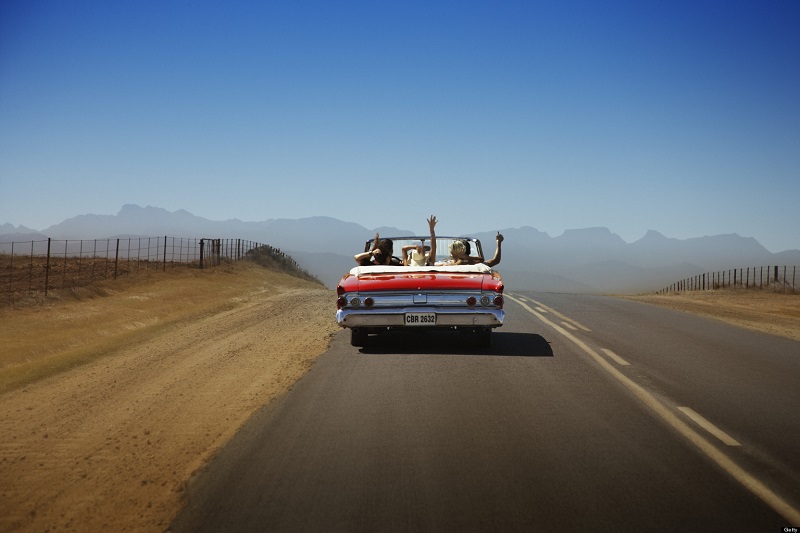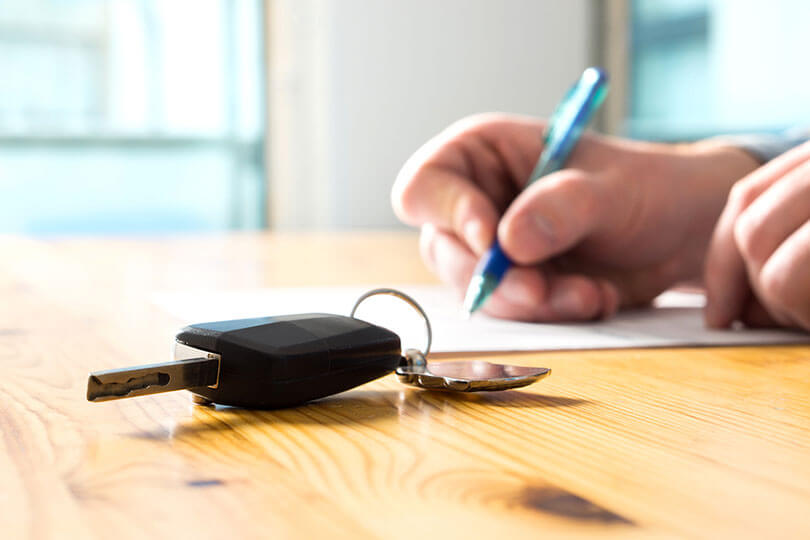Gone are the days where every adult had a folder with all those important pieces of paper and documents which authorities would send us. Over the years, there has been a gradual move into digital.
We don’t get a card with our National Insurance number on any more, many employers provide digital payslips rather than sending paper through the post, and bank statements are all online too.
It is often tempting just to put all paperwork into the recycling bin as it’s so easy to get a replacement when you need it. When it comes to owning your car though, there is some paperwork which you need to keep safely.
1. Driving Licence
Arguably the most important driving-related thing is your licence, which proves you have the right to be on the road in the first place. The driving licence used to be in two parts – the pink photocard, and a counterpart paper section.
In 2015 the paper section of the licence was abolished, so if you still have some old bits of paper licence in a drawer somewhere, these can safely be thrown away. The pink photocard should be kept safely.
Many drivers choose to carry their driving licence with them in their wallet, and it can be useful as identification in many different situations. But the law is clear that you don’t have to carry it. If you are stopped by the Police, they will ask to see your licence.
Drivers who don’t have their licence on them will be given a ticket to produce documents at any police station within 7 days. This can be inconvenient, so it’s probably easier to keep your licence on you at all times. This is especially true overseas when hiring cars as the law is often very different to the law in the UK.
2. Insurance Documents
Buying insurance is one of those tasks which nearly all of us do online, and many insurers send out policy documents by email rather than sending paper in the post. There’s no need to print off insurance documents and carry them around with you.
Make a note of the name of the insurer, your policy number and the claims telephone number you should call if you need to claim. If you are stopped by the police, they won’t ask to see your paperwork.
The police computer has access to the insurers’ database, so if you are stopped all they need to do is a quick search to confirm that you are one of the people named on the policy for that particular car.
If you are travelling overseas in your own car, take insurance documents with you. Foreign police will not have the same access as the police in the UK, and it might make things much easier if you are in an accident.
3. Car Tax

The car tax disc, which is officially known as the Road Fund Licence, was abolished in 2014. If you still have some of the old paper tax discs lying around then these can safely be discarded. There is no need to carry any proof of taxing your car around with you as again, this information is all held online.
You can log onto the DVLA website, enter the registration number of your car and check to see when the tax runs out. The police can do the same, using an automatic number plate recognition system to pick up any cars which are untaxed.
You will receive letters from the DVLA letting you know when it’s time to pay your car tax and you don’t need to keep these either. Just log into the website, make the payment and forget about it until the same time the following year.
4. MOT Certificate
MOT is one of the most recent aspects of driving to go online. Although you are still given a printout when your car passes or fails its MOT, the information is uploaded into the DVLA database by the garage where you have the test carried out. You no longer need to traipse along to the nearest Post Office with your MOT certificate and valid insurance in order to buy car tax, it’s all done online.
After your MOT is done, you can log into the DVLA website to see the results of the test digitally. If you’re thinking about selling your car, prospective buyers can do the same. So there’s really no need to keep years of MOT paperwork as proof that your car has been looked after. Unlike car tax, the DVLA will not write to you or let you know that your MOT is due. It’s up to you as a driver to keep on top of when the MOT test is due and make an appointment in plenty of time.
A similar type of paperwork is proof of servicing and this is one aspect which hasn’t gone online yet. Most drivers still ask mechanics to fill in the vehicle service book, stamp, date and sign it. This helps prove that your car has been serviced according to the manufacturer’s instructions.
But again, retaining this paperwork and remembering to get the book stamped isn’t a legal requirement, it’s just about protecting your investment and making your car as attractive as possible to any potential buyers in the future.
5. Ownership Documents

The V5 form, also known as the “log book” is the piece of paper which the registered keeper of a car gets to keep. Every time a car changes owner, there’s a section of the form to complete and send off to the DVLA so the records can be updated.
The V5 is an important piece of paper but it’s not something you need to carry in the car with you. Legally, the V5 doesn’t prove ownership of the car and it’s not something which the police will ask to see if they stop you.
If you’re thinking about selling your car and have misplaced the V5 then you can get another one from the DVLA but it will cost you £25.









